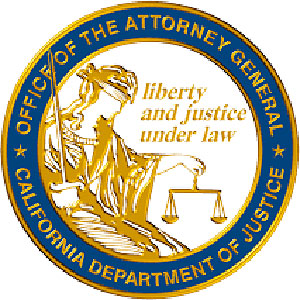California Attorney General Xavier Becerra joined a coalition of 18 attorneys general in a comment letter opposing a proposed Small Business Administration rule governing the appeals process for an emergency loan program designed to help small businesses during the pandemic.
 As the COVID-19 pandemic spurred layoffs across the nation in March, the federal government created the Paycheck Protection Program loan as part of the Coronavirus Aid, Relief, and Economic Security Act to provide an incentive for small businesses to keep their workers on the payroll.
As the COVID-19 pandemic spurred layoffs across the nation in March, the federal government created the Paycheck Protection Program loan as part of the Coronavirus Aid, Relief, and Economic Security Act to provide an incentive for small businesses to keep their workers on the payroll.
The program allowed the SBA to guarantee and forgive the full principal loan amount if businesses used the funds to cover payroll and other qualified expenses.
However, on Aug. 27, the SBA issued an interim final rule outlining the appeals process for PPP loan review decisions – a process the attorneys general contend lacks transparency, violates due process and would make it harder for small businesses to access needed relief.
“Small businesses have taken a crushing hit in this COVID-19 pandemic, and the last thing they need is bureaucratic red tape and cryptic decisions about why they were denied a loan or loan forgiveness,” said Becerra. “Many businesses are simply trying to stay afloat right now, and these loans from the Paycheck Protection Program are critical. This proposed rule is confusing and puts borrowers at a disadvantage — we need to do better to protect small businesses during this unprecedented pandemic.”
For many businesses suffering during the COVID-19 pandemic, a PPP loan is the only way to stay in business. However, not all small businesses have the resources to defend their PPP loan in response to an SBA investigation and rely heavily on appealing adverse decisions.
The new rules apply when the SBA determines that a borrower was ineligible for the PPP loan, was ineligible for the amount received, or is ineligible for loan forgiveness.
Becerra and the coalition urge the SBA to establish an appeals process for PPP loan decisions in which each level of review is independent and neutral. This would ensure that the same individual who made an initial decision regarding the loan could not review an appeal of their own decision. In its letter, the coalition also argues that the proposed rule:
- Fails to articulate procedures for initial loan decisions: The SBA has failed to articulate how it evaluates PPP loans in its investigations. This means that while filing an appeal, the borrower does not know what facts or law the SBA considered. Additionally, the lack of procedures leaves borrowers’ confidential information unprotected from disclosure;
- Creates a circular review process with no outside oversight: Without independent and neutral decision-makers, the proposed rule denies borrowers due process and violates the Administrative Procedures Act;
- Lacks fair procedures: The proposed rule requires borrowers to file a petition of appeal before release of the administrative record, upon which their appeal depends; and
- Is unfair: The proposed rule forces borrowers to continue to make payments on a loan while they await an outcome of their appeal on the denial of forgiveness of that loan.




